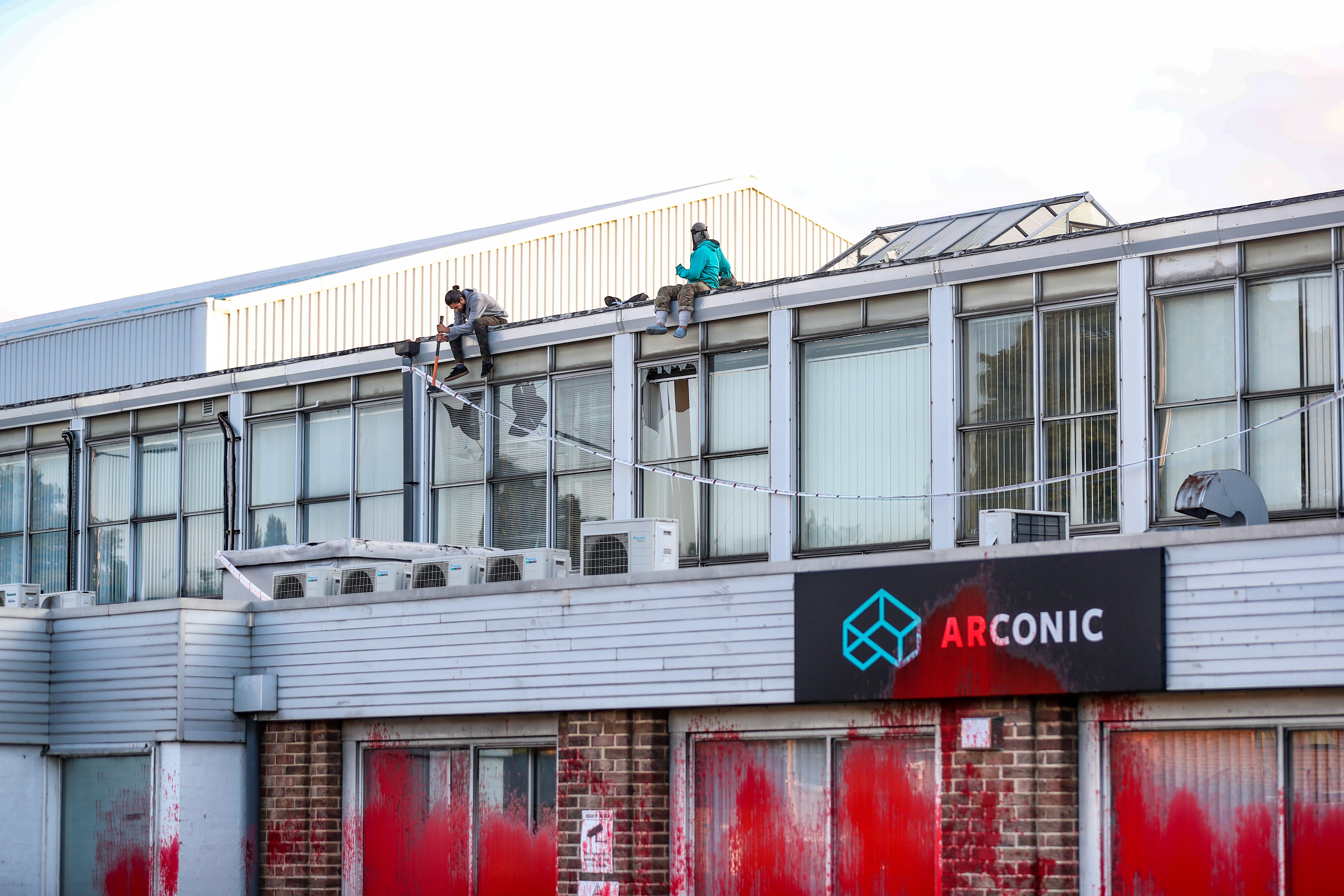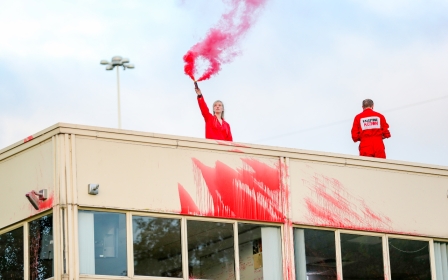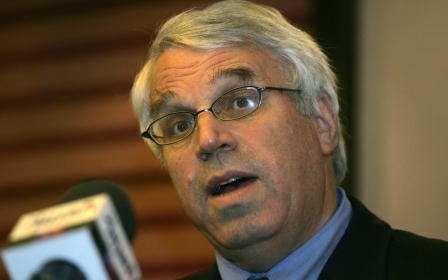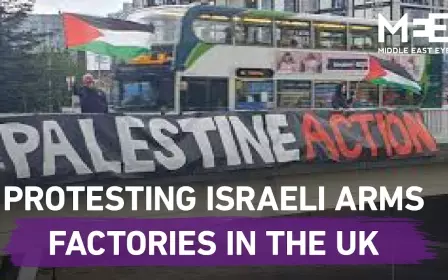Palestine activists occupy UK factory supplying materials for Israeli fighter jets
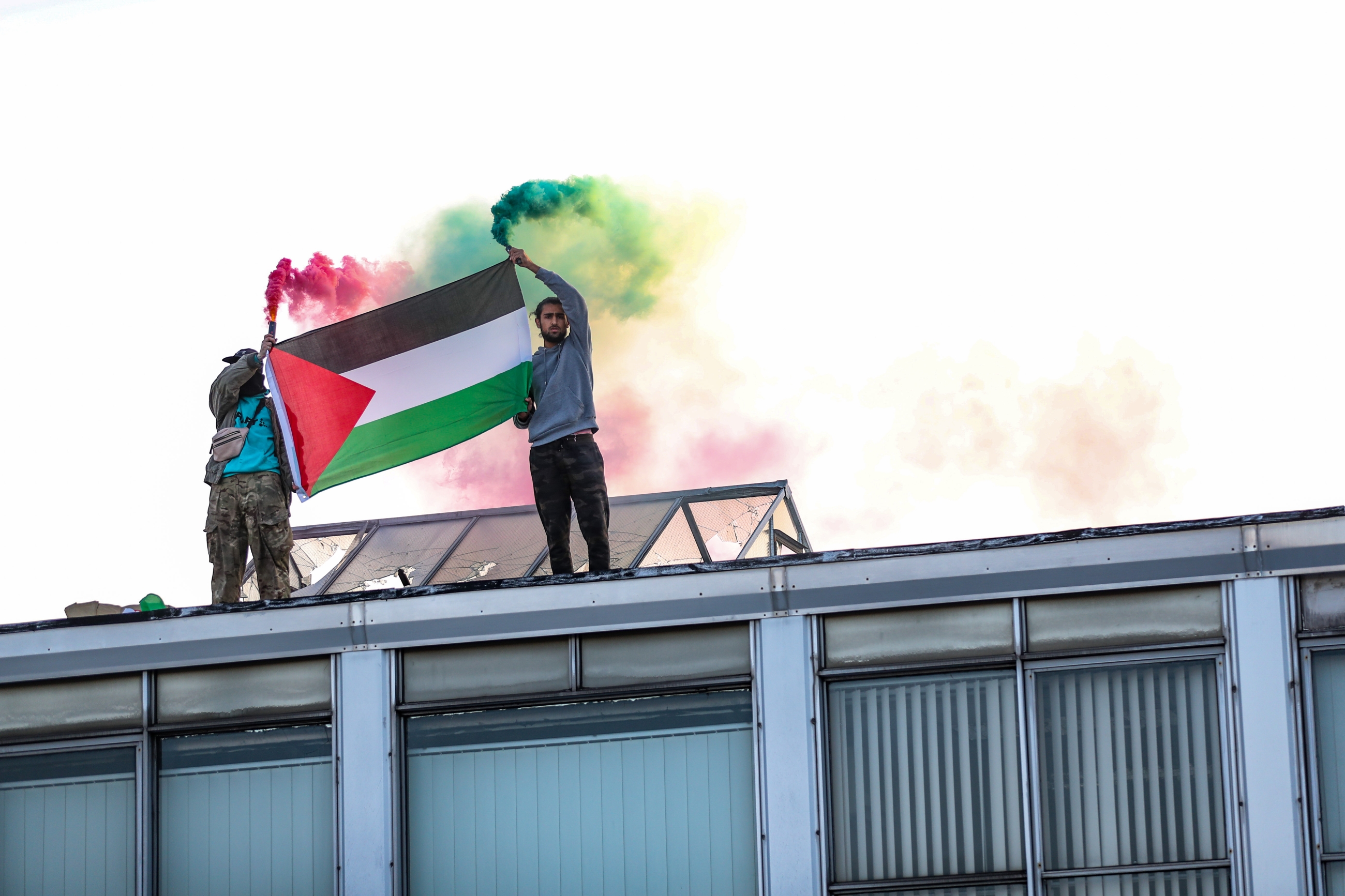
Pro-Palestine activists occupied a factory in Birmingham on Monday that produces materials used to make fighter jets for the Israeli army and the highly flammable material that led to the Grenfell Tower fire.
Palestine Action began its occupation of the Arconic factory in England's West Midlands region in the early hours of Monday morning.
New MEE newsletter: Jerusalem Dispatch
Sign up to get the latest insights and analysis on Israel-Palestine, alongside Turkey Unpacked and other MEE newsletters
The factory supplies various materials, including sheet metal, to manufacture Boeing and Lockheed Martin military aircraft used by the Israeli military in its latest assault on Gaza.
Last month's Israeli assault on the besieged Gaza Strip killed at least 248 Palestinians, according to the Gaza health ministry.
The activist group also said that Arconic produced the material responsible for the highly unsafe and flammable cladding supplied to Grenfell Tower, which led to the spread of the fire through the building four years ago that killed 72 people.
Arconic describes itself as the "leading provider" of aluminium products and that it "supplies aerospace, commercial transportation, industrial and building and construction markets."
"We are aware that a small number of protestors have gathered at our Kitts Green site in Birmingham. Police are on site and we are supporting them to ensure the safety of both the protestors and our colleagues who work there," a spokesperson for Arconic told Middle East Eye.
"We are also very much aware that this is the fourth anniversary of the Grenfell Tower fire, and would mention that our thoughts are with those affected by the tragedy. We continue to cooperate with and support the relevant investigations."
Images posted online showed Palestine Action activists sitting on top of the Arconic factory in an attempt to stop its operations, as others sprayed red paint on the factory windows.
Holding red and green flares and a Palestine flag, activists said they occupied the factory in support of Palestine and victims of the Grenfell tower fire.
"Companies such as Arconic have been able to avoid accountability for their crimes, operating within a global supply chain that diffuses responsibility," Palestine Action said in a statement.
"The same companies which fuel repression and war crimes committed against the Palestinian people are producing, operating and selling in the UK - and doing so with a consistent disregard for the deaths and suffering inflicted by their products."
The group added it held its protest at the Arconic factory to show support for the 72 victims of the Grenfell Tower fire on the fourth anniversary of the tragedy.
Earlier this year, a former executive from Arconic told the Grenfell inquiry that she knew the cladding the company produced could burn but did not tell customers.
Debbie French, the UK sales manager for Arconic from 2007 to 2014, said the company provided more flammable versions of the panel as part of a marketing strategy that acknowledged a fire-retardant version that "drastically increases fire resistance" was less likely to secure contracts for the company.
During her testimony, French said Arconic provided the easier to burn version of Arconic's product for the cladding as it costs less, and that she knew it "was and is flammable".
Middle East Eye delivers independent and unrivalled coverage and analysis of the Middle East, North Africa and beyond. To learn more about republishing this content and the associated fees, please fill out this form. More about MEE can be found here.


